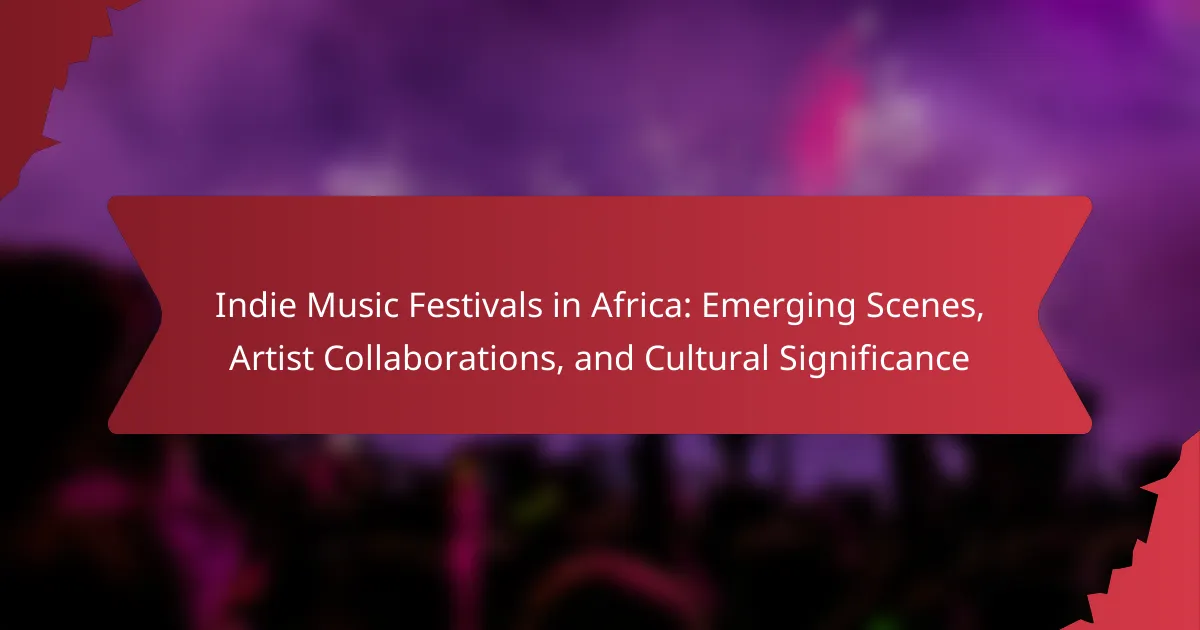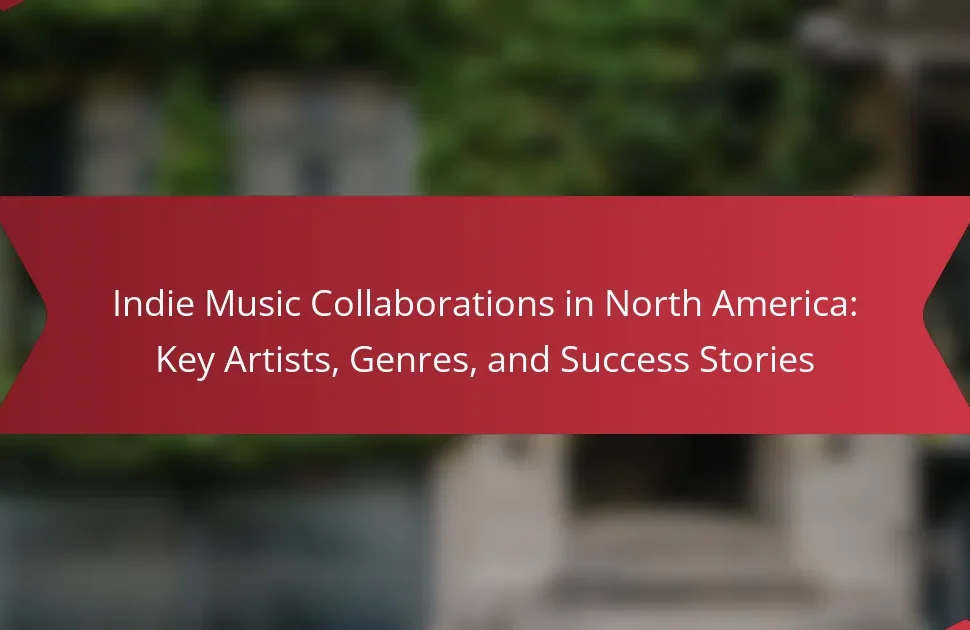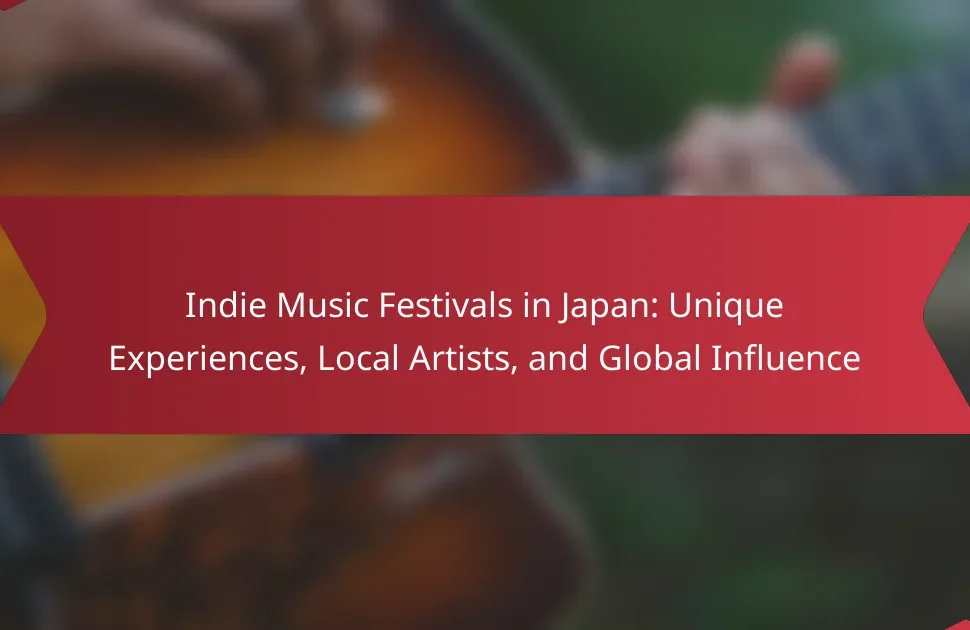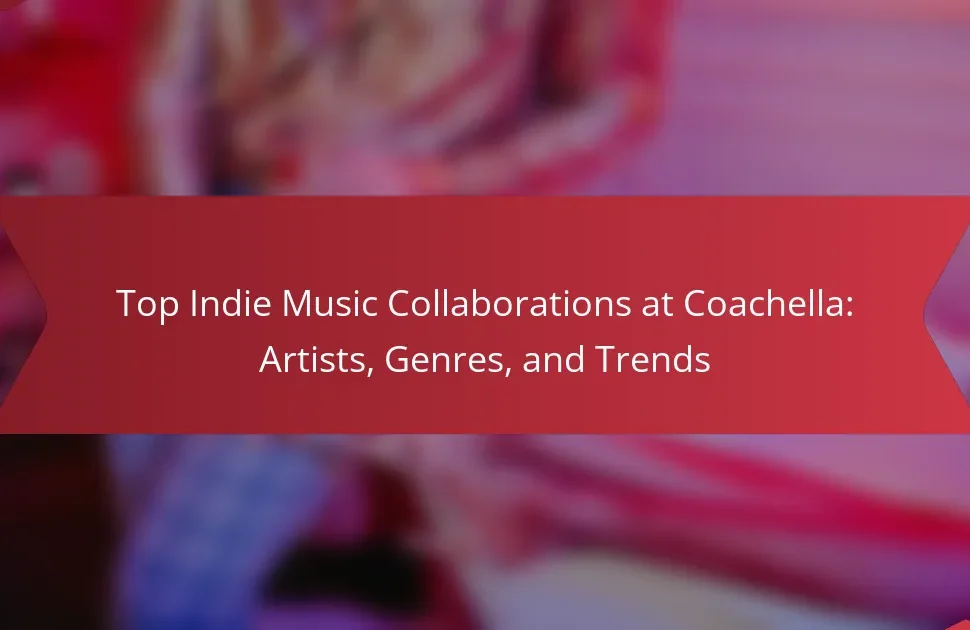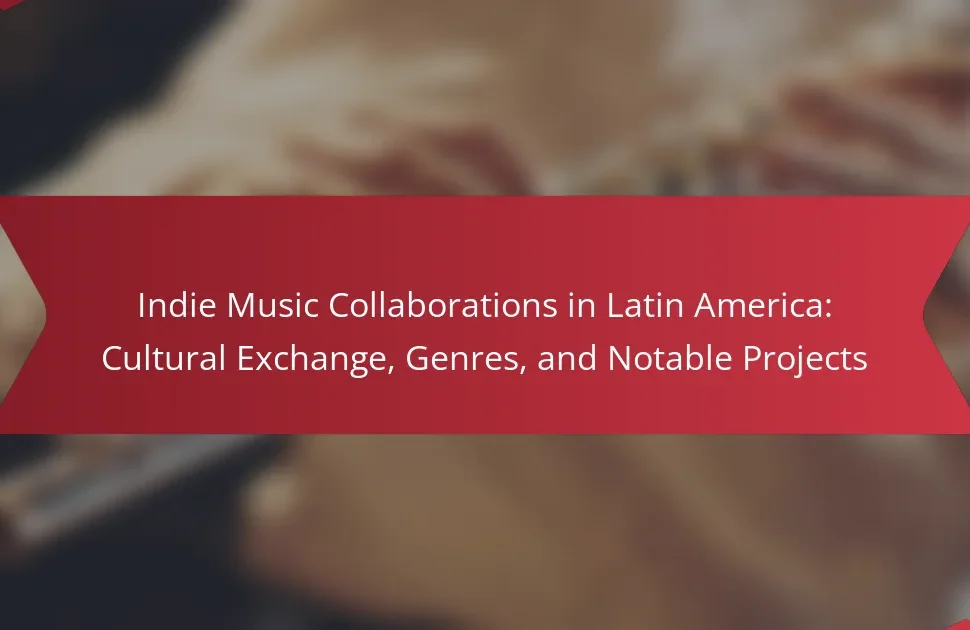Indie music festivals in Africa are crucial for promoting emerging artists and fostering cultural exchange. These events highlight collaborations across genres, enhancing creativity and audience engagement. They also emphasize the integration of traditional music with contemporary styles, preserving local heritage. Despite challenges like funding and infrastructure, these festivals significantly shape Africa’s evolving music landscape.
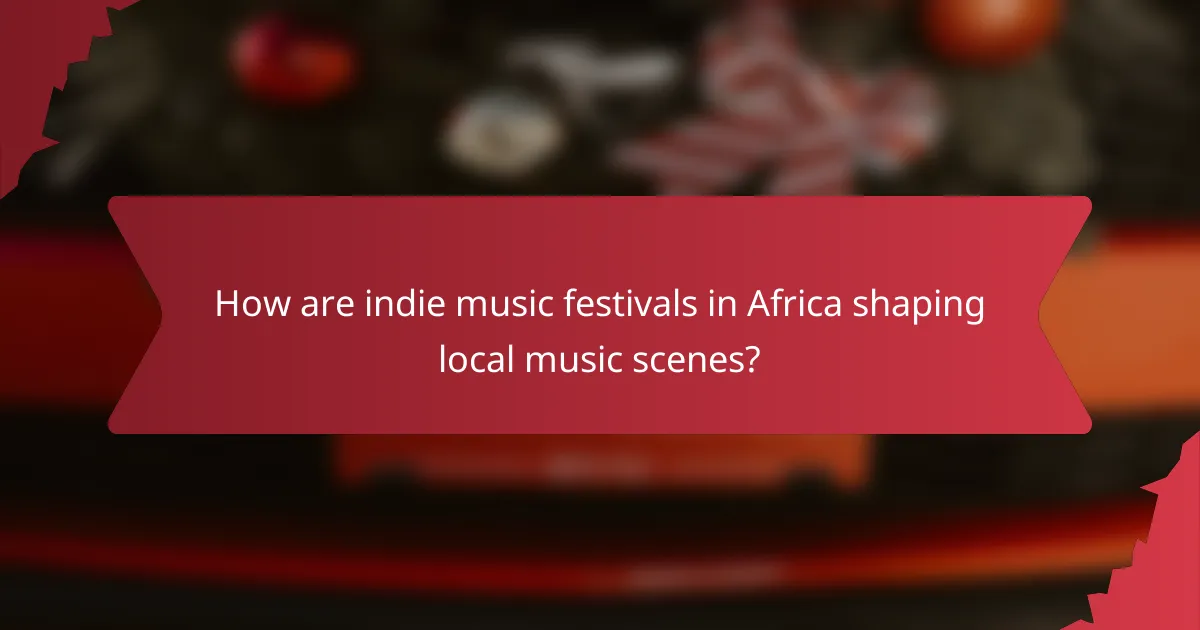
How are indie music festivals in Africa shaping local music scenes?
Indie music festivals in Africa are significantly shaping local music scenes by promoting diverse sounds and fostering collaborations. These festivals serve as platforms for emerging artists, allowing them to showcase their talents and connect with audiences.
Through events like the Cape Town International Jazz Festival and the Lake of Stars Festival in Malawi, artists gain exposure and opportunities to collaborate across genres. This cross-pollination enhances creativity and enriches the cultural fabric of local music scenes.
Moreover, indie festivals often emphasize cultural significance, showcasing traditional music alongside contemporary styles. This approach helps preserve local heritage while encouraging innovation. As a result, these festivals are vital in nurturing a vibrant, evolving music landscape in Africa.
What are the key characteristics of emerging indie music festivals?
Emerging indie music festivals in Africa are characterized by their focus on local talent, community engagement, and cultural diversity. These festivals foster collaborations between artists and promote unique musical expressions. They often feature varied genres, creating inclusive environments that celebrate both established and upcoming musicians. Additionally, they play a significant role in cultural preservation and innovation, attracting international attention and tourism.
Which regions in Africa are becoming hotspots for indie music festivals?
Regions in Africa becoming hotspots for indie music festivals include South Africa, Kenya, Nigeria, and Ghana. These areas showcase vibrant scenes that foster artist collaborations and cultural significance.
South Africa hosts prominent festivals like Oppikoppi and Cape Town International Jazz Festival, attracting diverse talent. Kenya’s festivals, such as the Nairobi Festival, highlight local artists and global acts, enhancing cultural exchange. Nigeria’s Afrobeats influence is evident in festivals like the Lagos Music Festival, which promotes emerging indie artists. Ghana’s Afrochella celebrates local culture and music, drawing international attention.
These regions are not only expanding the indie music landscape but also contributing to cultural dialogues through music.
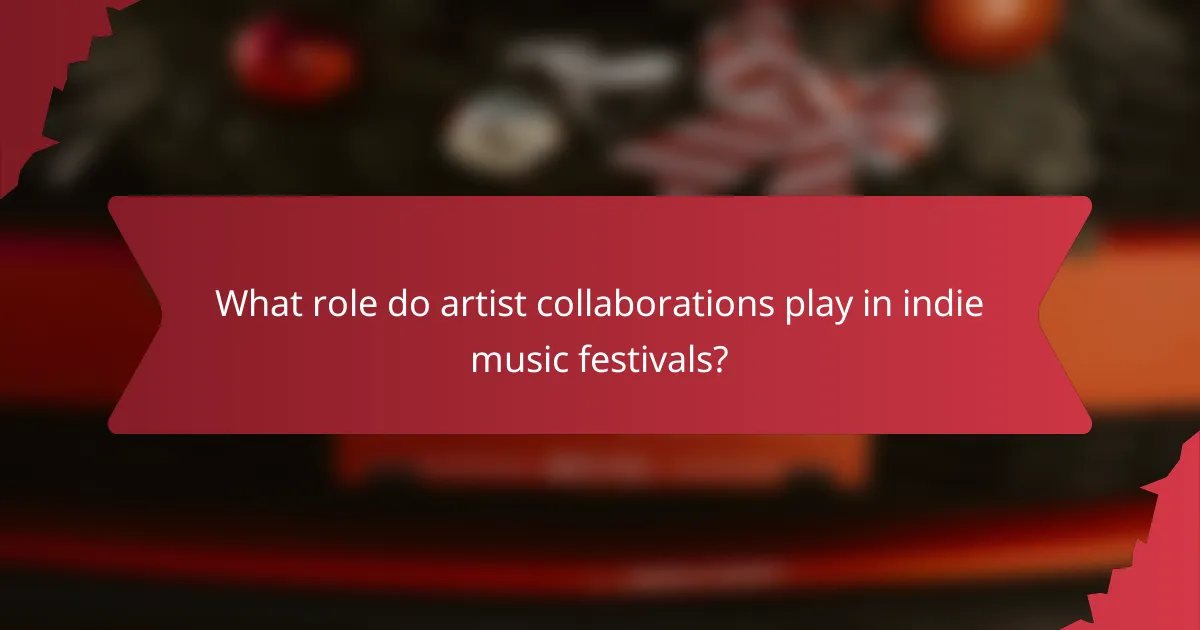
What role do artist collaborations play in indie music festivals?
Artist collaborations are vital in indie music festivals as they foster creativity and cultural exchange. These partnerships enhance audience engagement and showcase diverse musical styles. In Africa, collaborations often reflect local traditions, merging genres and attracting wider audiences. Festivals become platforms for artists to experiment and innovate, strengthening the indie music scene’s cultural significance.
How do collaborations enhance the festival experience for attendees?
Collaborations enhance the festival experience by fostering unique artistic expressions and creating a vibrant community atmosphere. They unite diverse talents, resulting in innovative performances that resonate with attendees. Collaborations also promote cultural exchange, allowing audiences to engage with various musical styles and traditions. This enriches the overall festival experience, making it memorable and impactful for participants.
Which notable collaborations have emerged from these festivals?
Notable collaborations emerging from indie music festivals in Africa include partnerships between local and international artists, fostering cross-cultural creativity. For instance, the Lake of Stars Festival has seen collaborations like the Malawian artist Tay Grin joining forces with South African musicians. The AfroPunk Festival has also facilitated unique projects, such as the fusion of Afrobeat and electronic music by various artists. These collaborations enhance cultural exchange and elevate the global presence of African indie music.
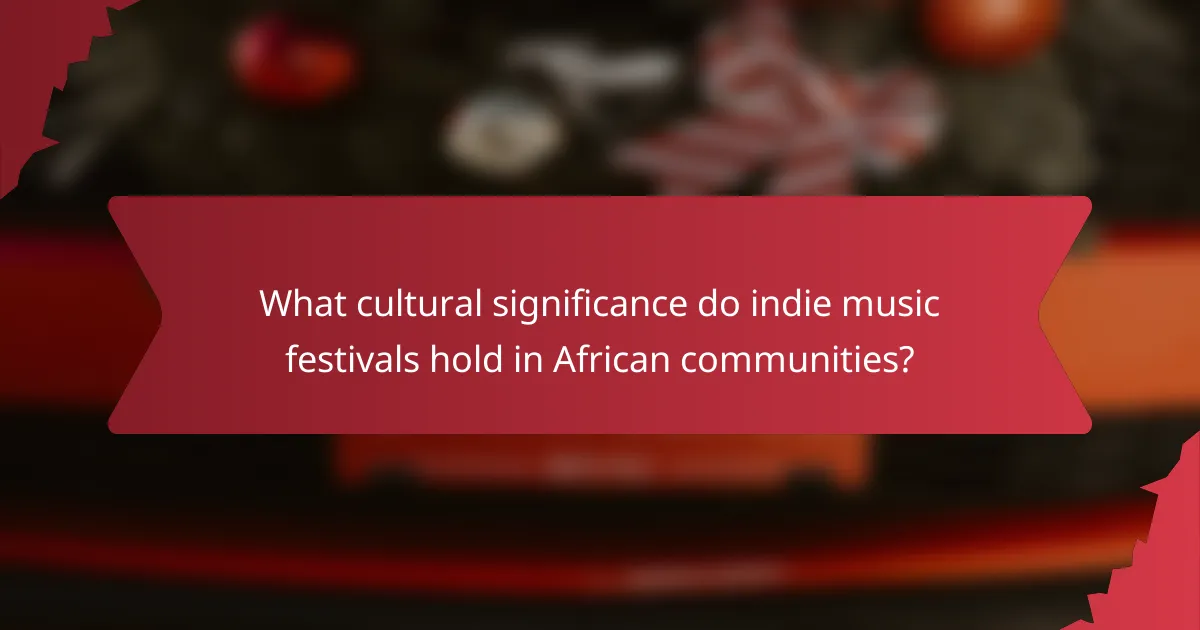
What cultural significance do indie music festivals hold in African communities?
Indie music festivals hold significant cultural value in African communities by fostering local talent and promoting cultural exchange. These festivals create platforms for emerging artists, allowing them to showcase their work and connect with audiences. They also celebrate diverse musical styles, reflecting the rich cultural heritage of various regions. Additionally, these events encourage community engagement and collaboration, strengthening social ties and cultural identity. The unique atmosphere of indie festivals often promotes innovation in music and art, contributing to the evolution of contemporary African culture.
How do these festivals promote local culture and heritage?
Indie music festivals in Africa significantly promote local culture and heritage by showcasing diverse musical genres and traditional art forms. These festivals serve as platforms for local artists, fostering collaborations that blend contemporary and traditional sounds. They attract audiences, enhancing community engagement and cultural pride. Additionally, festivals often feature local cuisine, crafts, and storytelling, enriching the cultural experience for attendees. This celebration of local identity helps preserve traditions while introducing them to broader audiences, ensuring their continuation and relevance in modern society.
What impact do they have on youth engagement and community building?
Indie music festivals in Africa significantly enhance youth engagement and foster community building. These festivals create spaces for artistic expression, cultural exchange, and collaboration among emerging artists. They also promote local talent and encourage participation from diverse communities, strengthening social ties and cultural identity. By attracting both local and international audiences, these events stimulate economic activity and inspire youth to engage in creative industries.
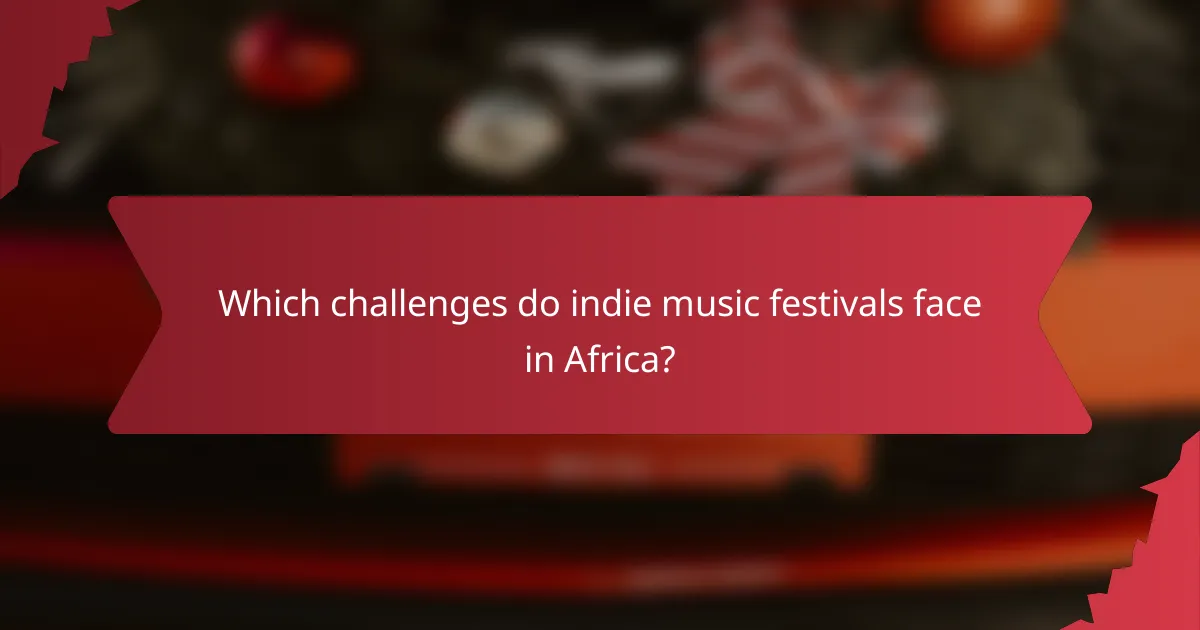
Which challenges do indie music festivals face in Africa?
Indie music festivals in Africa face several challenges that impact their growth and sustainability. Limited funding restricts festival organizers from attracting top talent and securing quality venues. Infrastructure issues, such as inadequate transportation and unreliable power supply, hinder event execution. Additionally, competition from mainstream festivals can overshadow indie events, making it difficult for them to gain visibility. Cultural barriers may also affect audience engagement and participation in certain regions. Lastly, the ongoing impact of global events, like pandemics, can disrupt festival schedules and attendance.
How do logistical issues affect festival planning and execution?
Logistical issues significantly hinder festival planning and execution by causing delays and increasing costs. Poor transportation infrastructure complicates artist and attendee access, while inadequate venue facilities can lead to safety concerns. Additionally, challenges in securing permits and managing waste can impact the overall experience. Effective planning requires addressing these logistical hurdles to ensure successful indie music festivals in Africa.
What are the financial barriers for organizers and artists?
Financial barriers for organizers and artists include high venue costs, limited sponsorship opportunities, and inadequate funding. Additionally, logistical expenses for equipment and transportation can strain budgets. The lack of infrastructure in some regions further complicates planning and execution. These challenges hinder the growth of indie music festivals in Africa.
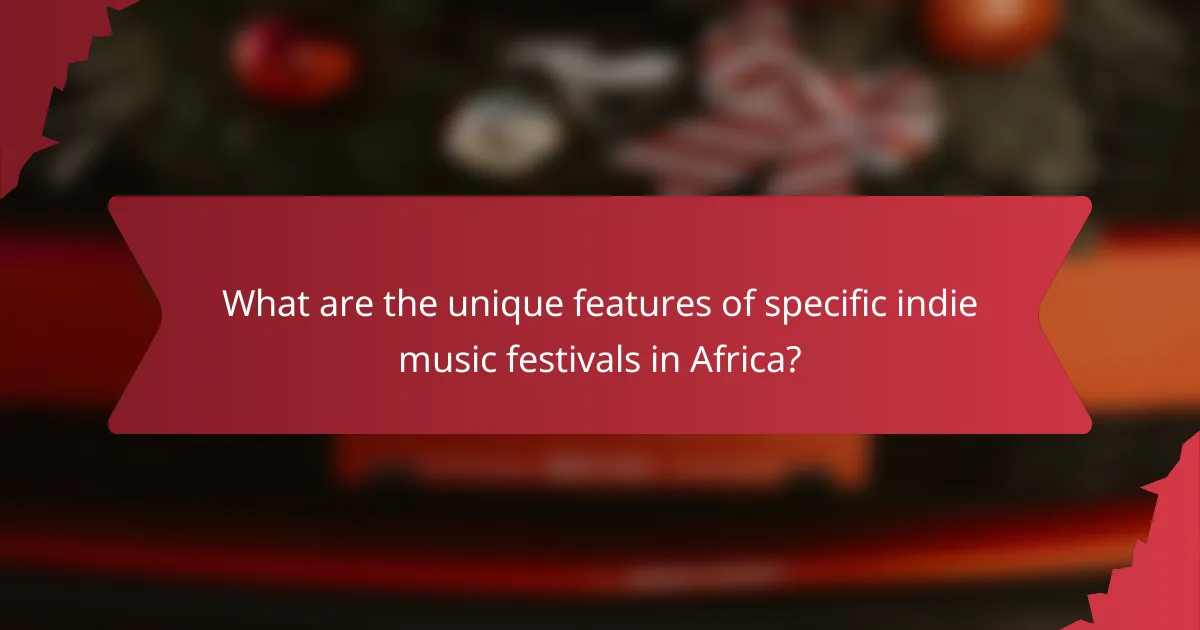
What are the unique features of specific indie music festivals in Africa?
Indie music festivals in Africa showcase unique features that highlight local culture and emerging talent. These festivals often emphasize artist collaborations, creating opportunities for cross-genre experimentation.
One distinctive aspect is the integration of traditional music styles with contemporary indie sounds, fostering a rich cultural exchange. Festivals like the Cape Town International Jazz Festival blend local artists with international acts, enhancing visibility for African musicians.
Additionally, many festivals prioritize community engagement, featuring workshops and discussions that promote music education. Events like the Afropunk Festival in Johannesburg focus on social issues, making them platforms for advocacy and cultural expression.
Lastly, the diverse settings of these festivals, from urban landscapes to rural backdrops, create unique atmospheres that reflect the local environment and heritage. This diversity contributes to the overall significance of indie music festivals in shaping Africa’s cultural landscape.
How do festival themes reflect regional diversity?
Festival themes showcase regional diversity by highlighting local cultures, traditions, and musical styles. Indie music festivals in Africa often reflect unique cultural narratives through artist collaborations and community engagement. For instance, festivals may feature regional instruments or traditional dance forms, enhancing the cultural experience. Additionally, these events foster connections between emerging artists and local audiences, promoting cultural exchange and understanding. This dynamic representation of regional identity through music strengthens community ties and celebrates Africa’s rich cultural tapestry.
What innovative formats are being used at these festivals?
Innovative formats at indie music festivals in Africa include immersive experiences, collaborative art installations, and virtual reality performances. These approaches enhance audience engagement and showcase local talent. For example, festivals often feature live painting sessions that connect visual arts with music, creating a multi-sensory environment. Additionally, some festivals incorporate mobile apps that provide interactive schedules and artist insights, improving attendee experience. These formats reflect the unique cultural significance of indie music scenes across the continent.
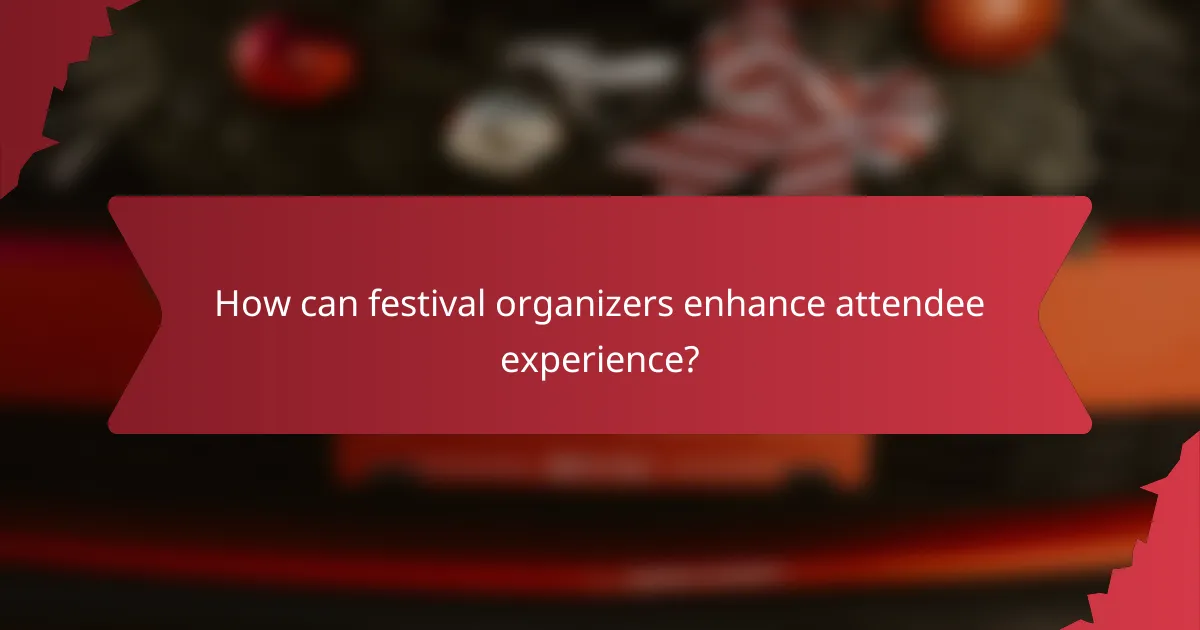
How can festival organizers enhance attendee experience?
Festival organizers can enhance attendee experience by focusing on immersive activities, diverse artist line-ups, and cultural engagement. Providing interactive workshops allows attendees to connect with artists and local culture. Incorporating technology, such as mobile apps for schedule updates and social sharing, improves accessibility and engagement.
Creating unique spaces for relaxation and socialization fosters community among attendees. Additionally, promoting local cuisine and crafts enriches the cultural significance of the festival, making it a memorable event. Engaging with the local community through collaborations can also enhance the festival’s authenticity and appeal.
What best practices can be adopted for festival marketing?
To effectively market indie music festivals in Africa, focus on community engagement, digital marketing, and artist collaborations. Building strong local partnerships enhances authenticity and reach. Utilize social media campaigns to create buzz and connect with potential attendees. Highlight unique cultural elements to attract diverse audiences. Engage with artists for joint promotions, leveraging their fanbases.
Which strategies improve artist-audience interaction?
Engaging artist-audience interaction at indie music festivals in Africa can be enhanced through various strategies. These include leveraging social media for real-time communication, creating immersive experiences, and fostering collaborations among artists.
Social media platforms allow artists to connect directly with fans, sharing behind-the-scenes content and promoting festival activities. Immersive experiences, such as interactive workshops or Q&A sessions, encourage deeper connections. Collaborations between artists can create unique performances that captivate audiences, showcasing the diverse cultural significance of the music scene.
Additionally, incorporating local traditions and art forms into performances can resonate with audiences, enhancing emotional engagement. These strategies collectively contribute to a vibrant festival atmosphere, strengthening the bond between artists and their audiences.
What common mistakes should be avoided when organizing a festival?
To avoid common mistakes when organizing indie music festivals in Africa, focus on clear planning and community engagement. Prioritize sufficient funding, as financial mismanagement can derail events. Ensure effective communication among all stakeholders to prevent misunderstandings. Avoid overscheduling artists, which can lead to fatigue and diminished performances. Lastly, consider the cultural significance of the festival to foster local support and participation.
